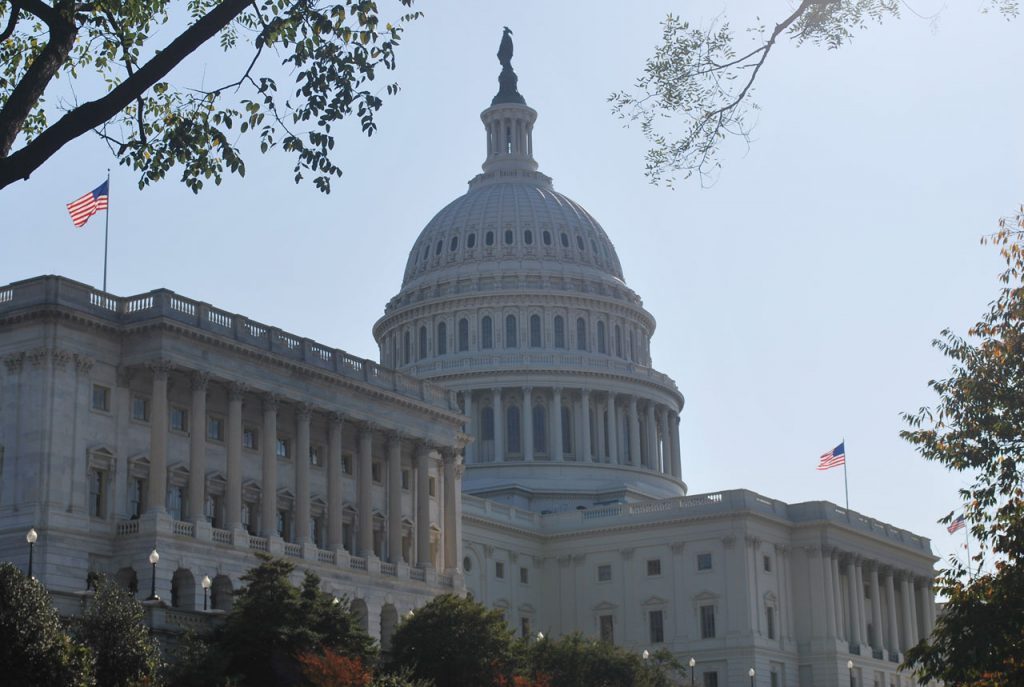Skift Take
The hotel industry should have reason to celebrate no matter what kind of economic relief Congress passes — but passage won’t come easy if Senator McConnell is willing to ignore even the bipartisan bill announced this week.
The hotel industry’s coronavirus relief holiday wish list has a good chance of getting fulfilled, no matter what kind of stimulus bill passes in Washington.
A bipartisan team of lawmakers introduced a $908 billion bill Tuesday aimed at providing a second round of economic relief for struggling businesses during the pandemic.
The proposal from moderate members of the House and senators like Susan Collins (R-Maine), Joe Manchin (D-W.Va.), Mitt Romney (R-Utah), and Mark Warner (D-Va.) includes many key measures the hotel industry has been requesting from Washington for months: more money for the small business Paycheck Protection Program, liability protection against coronavirus exposure claims, and additional federal aid for unemployment benefits.
Senate Republicans, led by Majority Leader Mitch McConnell (R-Ky.), averse to higher-cost aid packages later circulated a separate bill that was smaller than the bipartisan measure introduced earlier in the day. But the hotel industry has reason to be optimistic over both bills, as even the slimmed-down Republican measure includes the PPP funding, liability protections, and unemployment aid hoteliers want from the federal government.
“I think it’s safe to assume we have some momentum for the issues that are of major importance for the hospitality industry,” said Sean Hennessey, a professor at New York University’s Jonathan M. Tisch Center of Hospitality.
The biggest difference between the bipartisan bill and the slimmed-down one involves aid to the airline sector, transit agencies, and state and local governments.
The bipartisan measure includes a $17 billion extension to the airline payroll support initiative included in the $2 trillion relief bill passed in late March. It also earmarks $4 billion for airports. The McConnell-backed bill does not.
“I think the fact that such a strong group of members of Congress from both the House and Senate came together shows there’s an important contingency of people who support relief,” said Tori Emerson Barnes, executive vice president of public affairs and policy at the U.S. Travel Association.
The Republican-led bill cuts out industry-targeted aid for airlines and instead largely focuses on providing liability protections, a one-month extension on unemployment insurance, and roughly $333 billion for a second round of PPP loans. It also provides money for coronavirus testing and vaccine development.
The latest relief proposals come at a difficult time for hotel industry employment.
The nearly 25 percent unemployment rate within the industry is out of step with the 6.9 percent national average seen in October, according to the U.S. Bureau of Labor Statistics. But that’s still a significant decline from the nearly 49 percent hotel unemployment rate seen in April, potentially leading some politicians to view the industry as one less in need of assistance.
Industry eyes will be on Friday’s November jobs report, as it could be the first signal unemployment is on the rise along with new coronavirus case counts. No matter what comes out on Friday, the hotel industry should pay most attention to the slimmer bill backed by McConnell.
“The challenge we faced heading up to the election wasn’t President Trump. You had [Sec. of the Treasury Steven] Mnuchin negotiating with [Speaker of the House Nancy] Pelosi, and if they had come to a deal, they would have never gotten Senate support for it,” said American Hotel & Lodging Association CEO Chip Rogers last month at an NYU webinar. “The Senate was always the one out of play in that moment in time.”
McConnell previously balked at higher-spending measures proposed by Democrats, and he reiterated this week desires for a targeted relief bill compared to the nearly $1 trillion bipartisan measure. The Senate majority leader’s previous proposals have been around $500 billion.
The travel industry continues to recognize McConnell is the key to unlocking further aid, at least with current congressional members.
“Recognizing a narrowed-down bill is what all we can likely clear through the Senate, we have to see what is the bare minimum we can have to survive and get through this until we see a broader stimulus package sometime in the first quarter,” Barnes said.
The hotel sector within the greater travel industry appears to have most of its bare minimums met by either bill, which ideally would deliver enough of a life raft to buoy into next spring when vaccines are in wider distribution and President-elect Joe Biden’s administration presides over the executive branch. The greater travel industry expects a broader relief and stimulus package wouldn’t be possible until Biden is in the White House.
“My sense is that, yes, there is a recognition that there needs to be relief in the near-term and that waiting for a Biden presidency and new administration to craft a major bill is probably going to bring you that much closer to maybe not the finish line but a point in time where widespread distribution of the vaccine is becoming more prevalent,” Hennessey said.
Have a confidential tip for Skift? Get in touch
Tags: cares act, coronavirus, coronavirus recovery
Photo credit: Even a Republican-backed smaller coronavirus relief measure includes all the key points the hotel industry requested in recent months. Peter Griffin / Needpix.com
